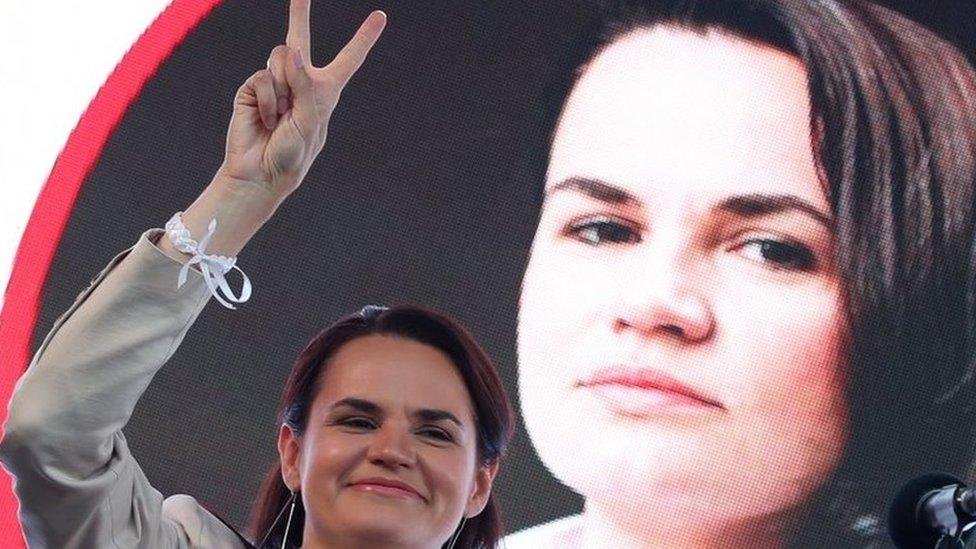Belarus protests: Workers boo Lukashenko as election unrest spreads
- Published
Large crowds of anti-government demonstrators rallied in the capital
Belarusian President Alexander Lukashenko has been heckled by workers on a visit to a factory as anger mounts over his disputed re-election.
Workers chanted "leave" and booed the long-time leader of the ex-Soviet state as he insisted he would not allow a new vote after allegations of ballot fraud.
Strike action spread to state TV, with staff walking out on Monday.
Opposition candidate Svetlana Tikhanovskaya has suggested she could act as an interim leader.
Police violence towards opposition supporters, as well as the alleged poll-rigging in the 9 August vote, fuelled a big protest rally in the capital Minsk on Sunday.
Mr Lukashenko has led Belarus since 1994, maintaining close relations with neighbouring Russia, on which Belarus heavily relies for energy supplies.
How great is the pressure on Lukashenko?
According to local, independent news site Tut.by, Sunday's opposition rally in Minsk was "the largest in the history of independent Belarus".
A wave of anger has been rising since the Central Election Commission said Mr Lukashenko had won 80.1% of the vote and Ms Tikhanovskaya - 10.12%.
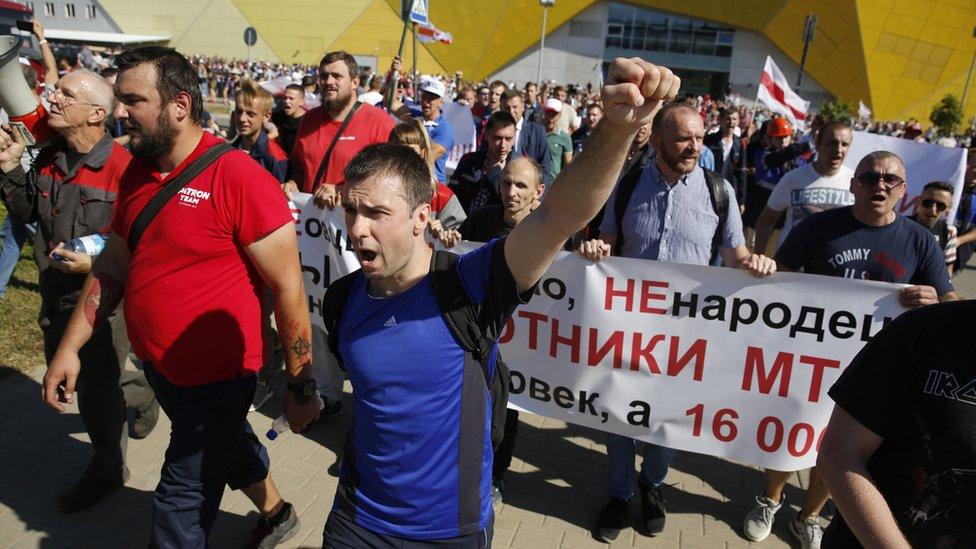
Striking workers gathered outside the Minsk tractor factory on Monday
Hundreds of protesters have been wounded and two have died in clashes with police over the past week. Some 6,700 people have been arrested, and many have spoken of torture at the hands of security forces.
On a visit to a Minsk tractor plant on Monday, Mr Lukashenko sought to defend his disputed victory, telling workers: "We held the election. Until you kill me, there will be no other election."
However he said he was willing to hold a referendum and "hand over my authority in accordance with the constitution - but not under pressure and not via street protests".
As Mr Lukashenko spoke at the factory, workers booed him and chanted "leave".
Allow X content?
This article contains content provided by X. We ask for your permission before anything is loaded, as they may be using cookies and other technologies. You may want to read X’s cookie policy, external and privacy policy, external before accepting. To view this content choose ‘accept and continue’.

Also on Monday, the Minsk Philharmonic held a singing protest.
Allow X content?
This article contains content provided by X. We ask for your permission before anything is loaded, as they may be using cookies and other technologies. You may want to read X’s cookie policy, external and privacy policy, external before accepting. To view this content choose ‘accept and continue’.

Last week, workers at state-run factories walked out in solidarity with the protesters, and more strikes are planned for this week, increasing the pressure on Mr Lukashenko.
At state TV, staff walked out in protest against censorship and the election results.
Ms Tikhanovskaya, who left for Lithuania after denouncing the results, insists that where votes were properly counted, she won support ranging from 60% to 70%.
In a video message released on Monday, she said she was ready to become a "national leader" in order to restore calm and normality, freeing political prisoners and preparing for new elections.
Opposition candidate Svetlana Tikhanovskaya and President Lukashenko give very different messages

Repeat of Ukraine crisis?

Russian TV news bulletins have been making ominous parallels between Belarus 2020 and Ukraine 2014. Ukraine's pro-Western revolution led to Moscow sending in its special operations forces to annex Crimea and Russian military intervention in eastern Ukraine.
Six years on, could Russia's military intervene in Belarus? On paper, at least, such a move would appear counter-productive. The opposition movement in Belarus is not anti-Russia/pro-Europe - it is anti-Lukashenko. If Russia were to send in troops to shore up the Belarusian leader, it risks alienating the Belarusian people and creating anti-Moscow sentiment.
True, Moscow is determined to keep Belarus within what it sees as Russia's sphere of influence. The Kremlin's ultimate goal is deeper integration with its neighbour - a fully-fledged union state (with Vladimir Putin at the helm). It could still achieve this through political leverage.
The Kremlin has a pathological fear of "coloured revolution" on its doorstep. But Minsk 2020 is not Kyiv 2014. Belarus is not choosing between East and West. The Belarusian people are outraged by the brutality of their security forces. So much so that even Mr Lukashenko's traditional base - including the state factory workers - are deserting him.

How did Sunday's rallies play out?
Rival rallies were held in the capital, with the opposition event appearing to attract much higher numbers.
An official report said 65,000 people had attended the presidential rally but unofficial estimates were as low as 10,000. Unofficial estimates for the opposition gathering ranged between 100,000 and 220,000.
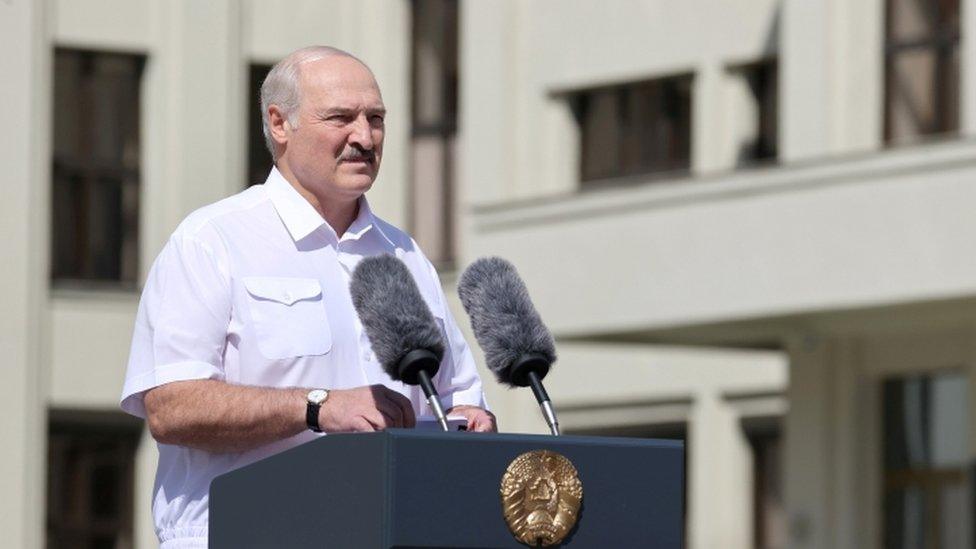
Mr Lukashenko described the opposition as rats
There were reports of state sector workers being forced to attend Mr Lukashenko's rally or face the threat of losing their jobs.
As the president spoke, the anti-Lukashenko protesters gathered for a peaceful rally near a war memorial in the centre of Minsk.
A number of officials, as well as current and former police officers, have resigned.
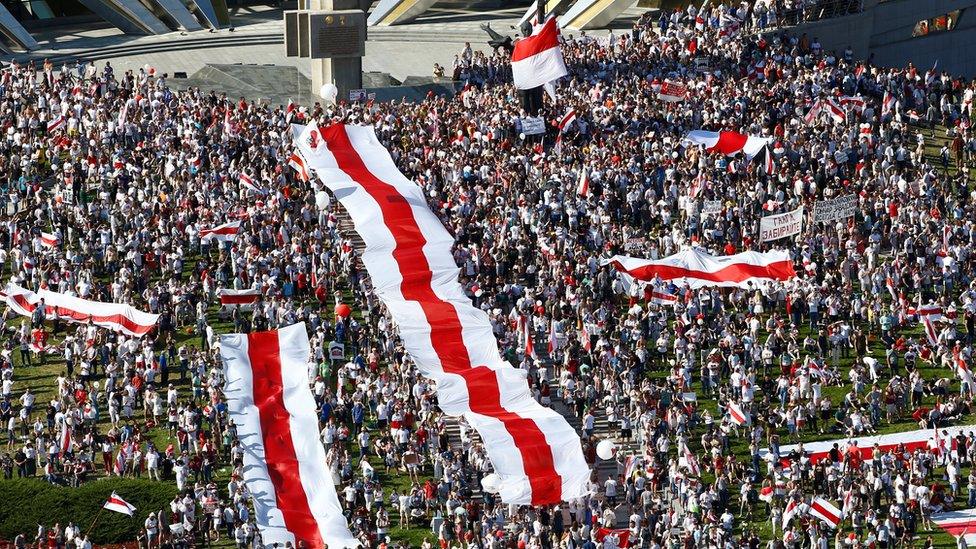
Protesters were out in force in Minsk on Sunday
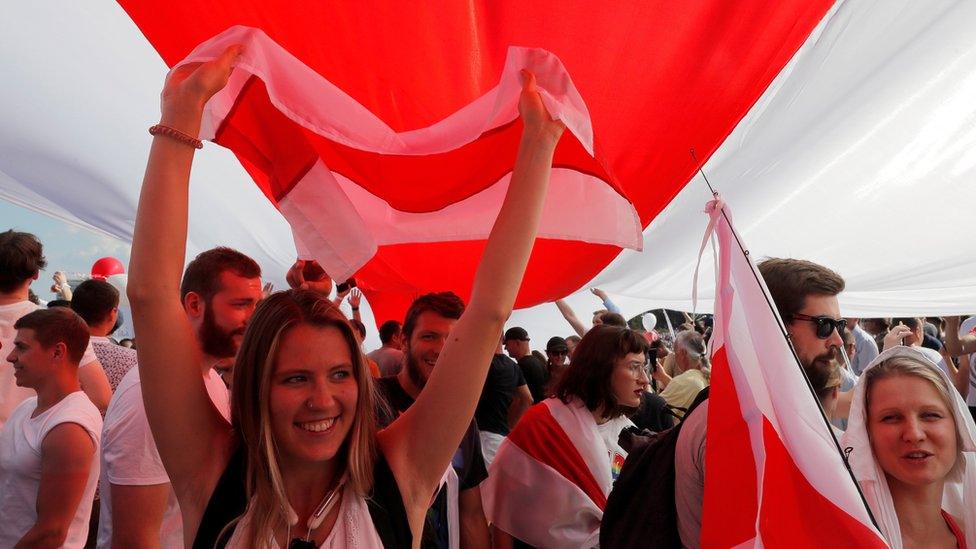
The Belarusian ambassador to Slovakia, Igor Leshchenya, declared his solidarity with the protesters. He told the BBC: "I represent Belarus and the Belarusian people, which according to our constitution is the only source of power."
What's happening internationally?
EU leaders are to hold an emergency video summit on Wednesday. EU foreign ministers agreed last week to prepare new sanctions, external against Belarusian officials responsible for "violence, repression and the falsification of election results".
The UK said on Monday it did not accept the results of the "fraudulent" election.
"The world has watched with horror at the violence used by the Belarusian authorities," said Foreign Secretary Dominic Raab, external.
Also on Monday, US President Donald Trump said his administration was following the "terrible situation" in Belarus closely.
President Lukashenko has sought Russian help, saying President Vladimir Putin has promised to provide comprehensive assistance in the event of any external military threat.
In a conversation on Sunday, the two men discussed "the situation in Belarus, taking into consideration the pressure the republic was being put under from outside", the Kremlin said.

More about the protests in Belarus
LETTER FROM MINSK: Shocked by violence, people lose their fear
SPREADING THE NEWS: How messenger app bypassed blackout
PROFILE: The stay-at-home mum challenging Belarus's longtime ruler
- Published17 August 2020

- Published17 August 2020
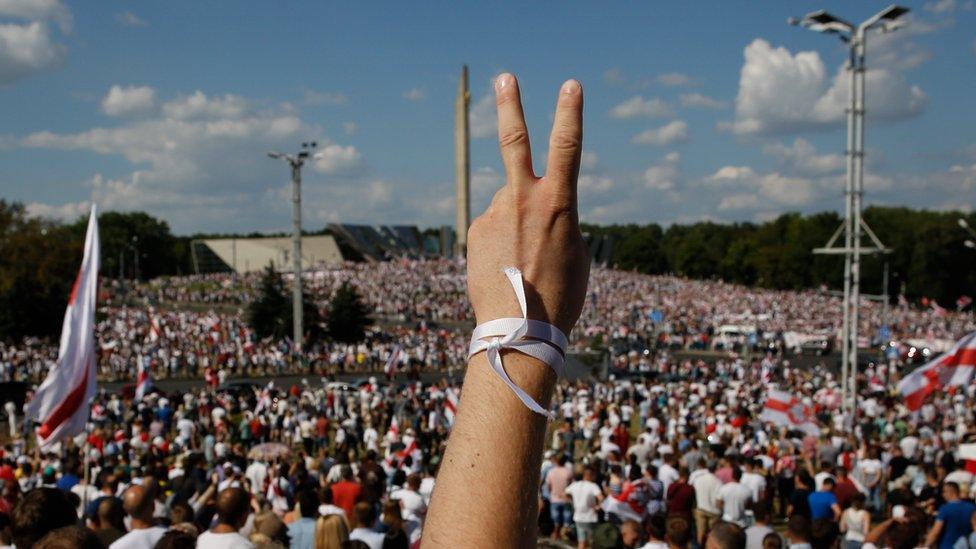
- Published8 September 2020
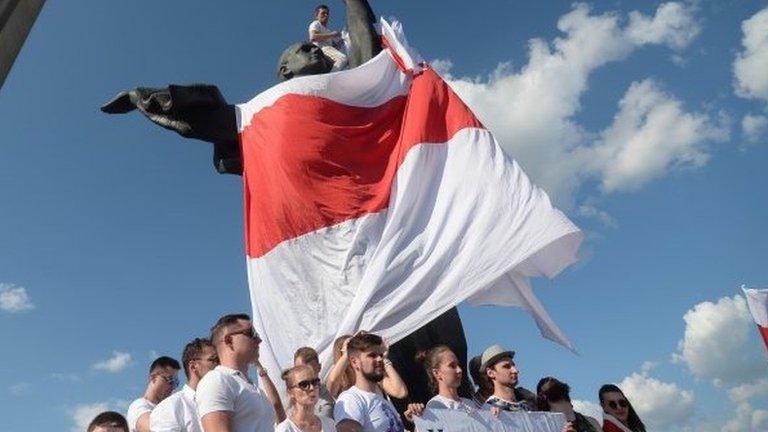
- Published16 August 2020
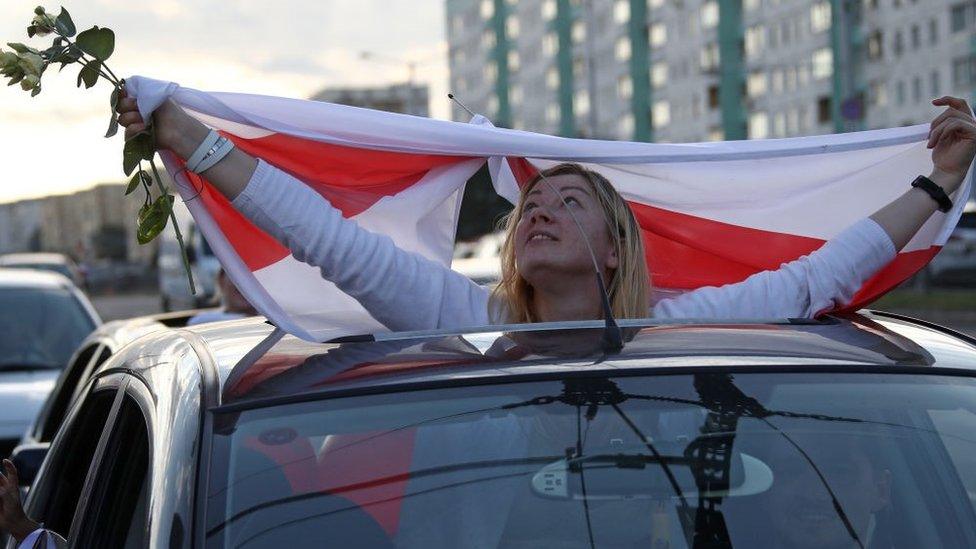
- Published15 August 2020
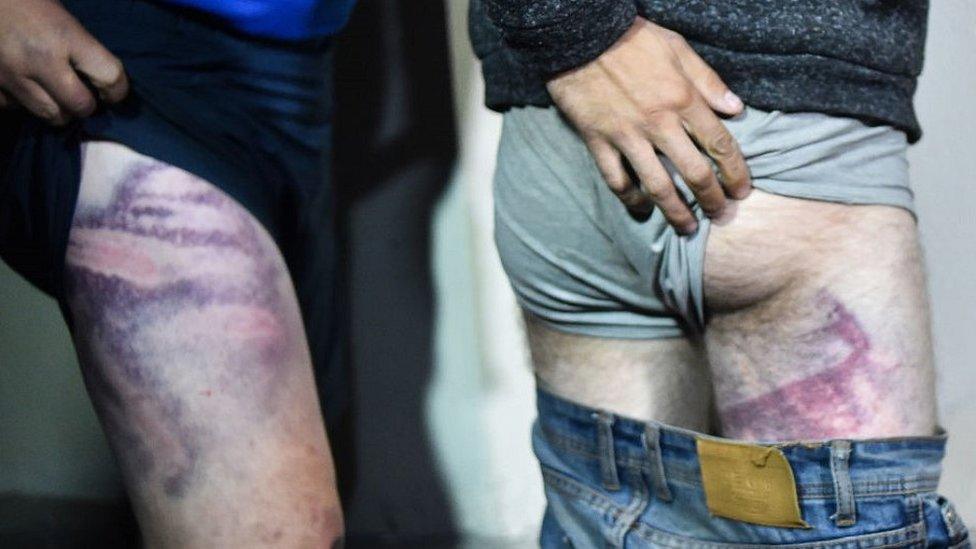
- Published14 August 2020
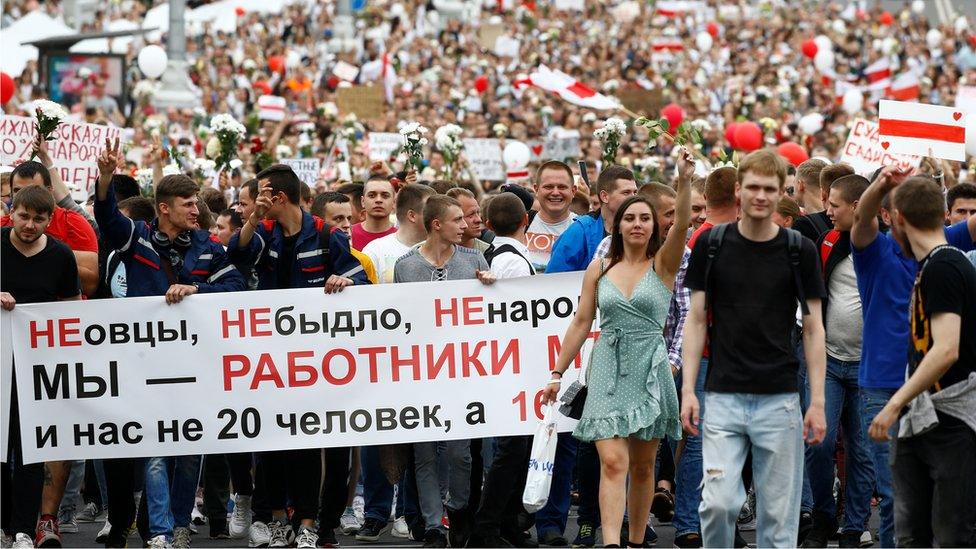
- Published14 August 2020
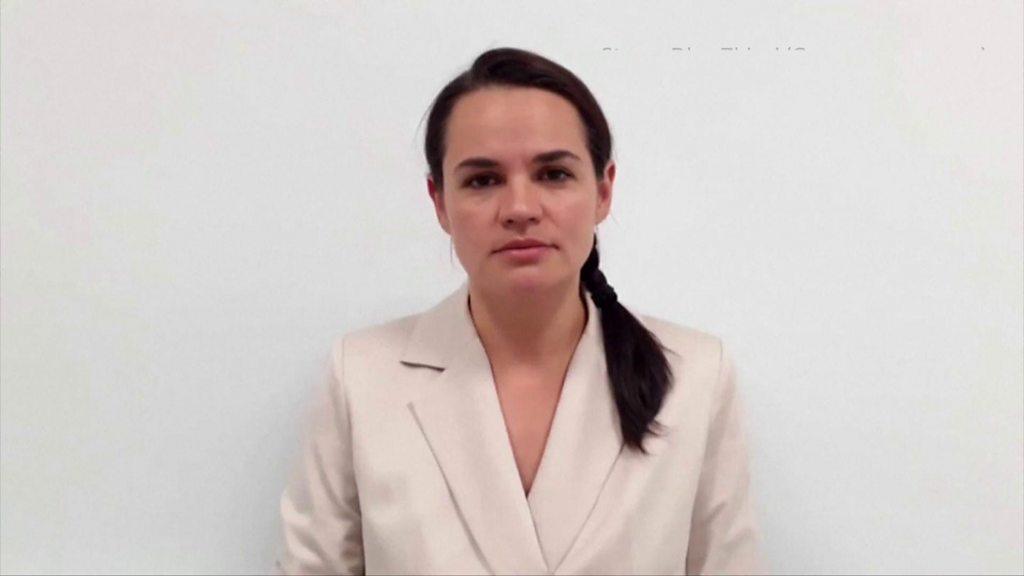
- Published11 August 2020
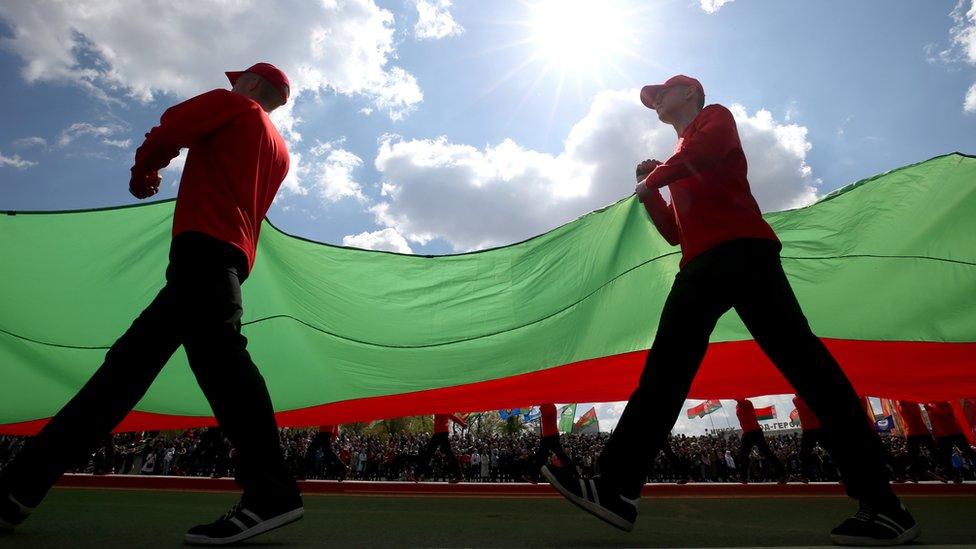
- Published13 August 2020
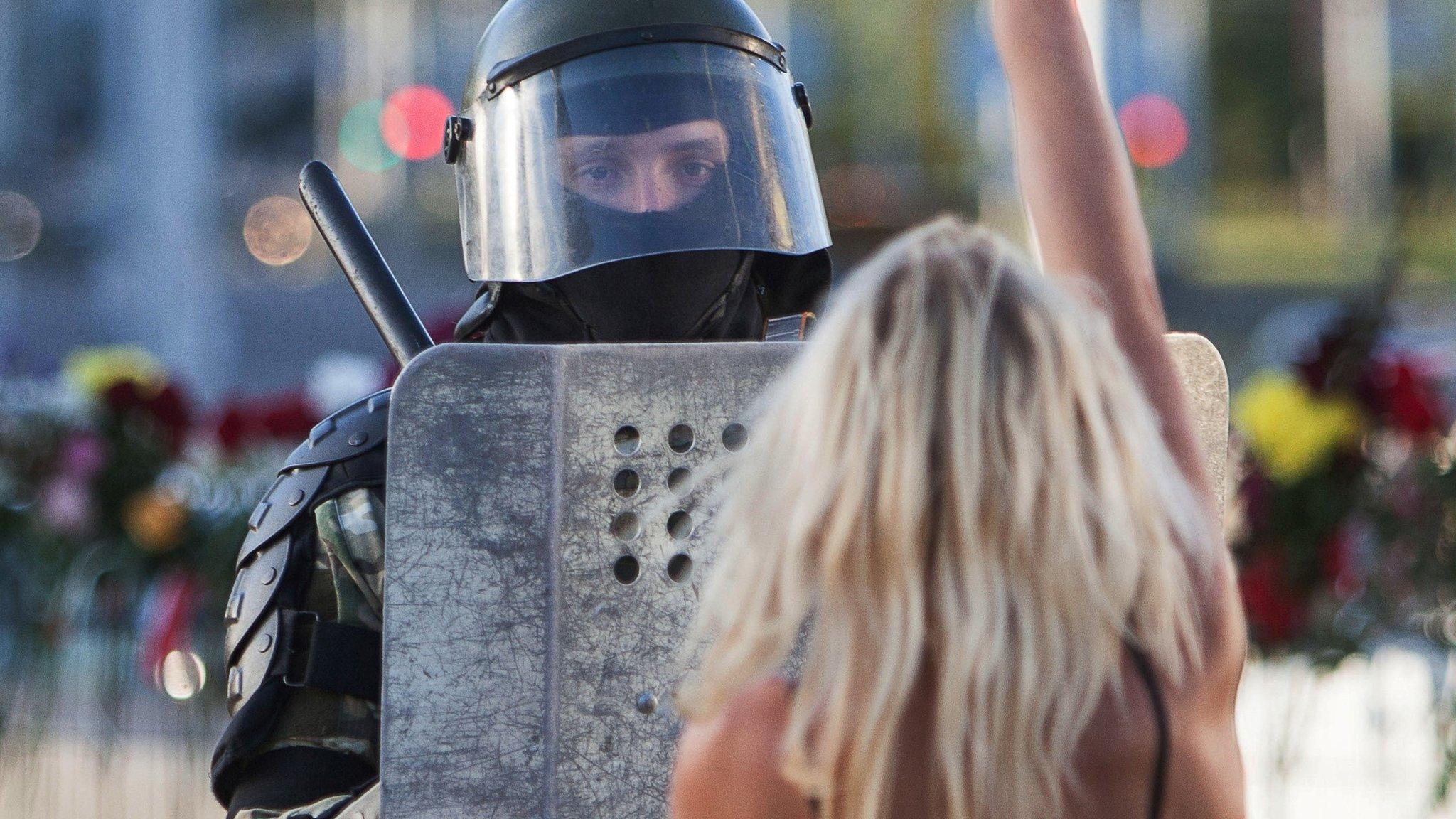
- Published1 August 2020
